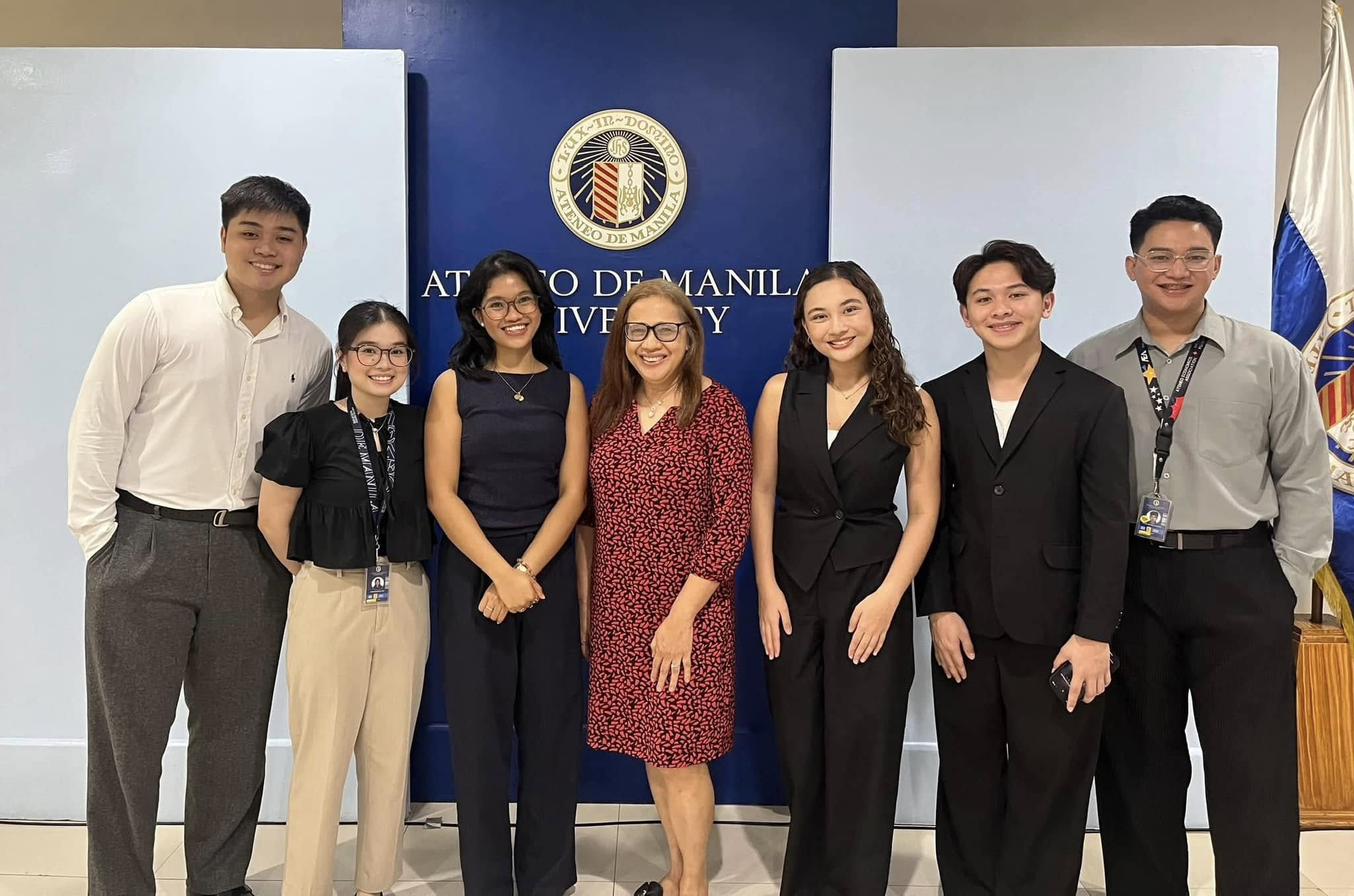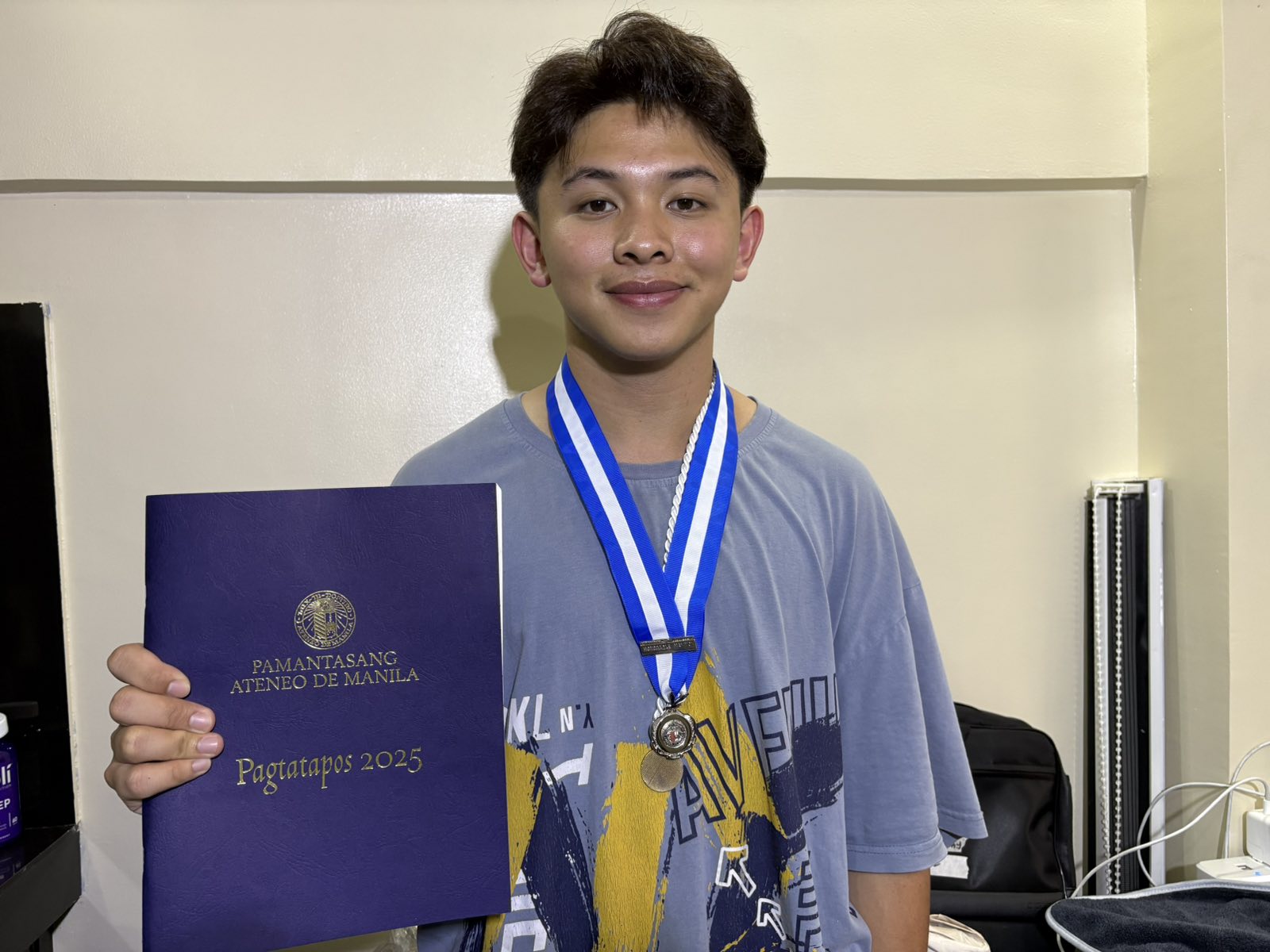MANILA, Philippines — At age 12, Eugene Dela Cruz was sleeping under a bridge, clutching a plastic bag that held his entire world. He had no bed, no home, and no family to come back to. But on June 2025, that same boy—now a 24-year-old man—crossed the stage at the Ateneo de Manila University’s commencement ceremony, not as a statistic, but as a scholar.

Eugene graduated with a Bachelor of Arts in Economics (Honors Program), with a specialization in Financial Economics and a minor in Decision Science. He was conferred Honorable Mention and earned Third Best Undergraduate Thesis in Economics—a remarkable achievement considering where his story began.
Born in Hilongos, Leyte, Eugene’s life was marked by hardship early on. After his parents separated when he was five, he was left in the care of his grandmother. He traveled to Manila alone, with no money, no relatives, and no safety net. He became one of the many invisible children on the streets—begging for loose change, washing in public restrooms, and sleeping under tricycles or train stations.

“Every coin I received reminded me what it felt like to have nothing,” Eugene wrote in his graduation reflection. “No one noticed when I vanished from school. I became invisible.”
Despite his circumstances, Eugene never gave up on education. He returned to Leyte and graduated senior high school from Hilongos National Vocational School with flying colors—earning a 99% general average, collecting more than 150 medals and awards, and being named valedictorian.
In 2021, as the pandemic pushed classes online, Eugene faced a new hurdle: he didn’t have a laptop. To continue his studies, he launched a social media campaign called “Piso Para sa Laptop, Piso Para sa Pangarap.” Tragically, the money he raised was stolen in a scam.
But just as he was about to give up, help arrived. GMA’s Kapuso Mo, Jessica Soho featured his story. A real laptop was delivered—this time, by people who believed in his dream.

With that, he formally entered Ateneo as a scholar under the Fr. William H. Kreutz, SJ Endowment Scholarship, supported by the Office of Admission and Aid and the Ateneo Alumni Scholars Association.
“They didn’t see empty forms or missing documents,” he said. “They saw a child desperate for a second chance.”
His time at Ateneo was far from easy. Eugene worked as a freelance tutor and even choreographed festival dances to cover rent and food. He battled imposter syndrome, often feeling out of place in one of the country’s most prestigious universities.
“Most nights, I studied on an empty stomach,” he shared in interviews. “But giving up was never an option.”
He found a chosen family among classmates, mentors, and school administrators who believed in him. Their support helped him push through grueling semesters and moments of doubt.

When he finally stood on stage to receive his diploma—with Honorable Mention and a top thesis award—it was more than a graduation. It was a full-circle moment of resilience, faith, and transformation.
“I may not have a home waiting at journey’s end. But I discovered a new family,” he said in his speech. “Poverty can be a hindrance to success—only if we let it be. You possess a strength no hardship can steal.”
Eugene’s story has struck a chord nationwide. More than a personal victory, it’s a powerful reflection of what happens when potential meets opportunity. In a country where thousands of children are forced to drop out due to poverty or discrimination, Eugene is living proof that the cycle can be broken.
He now plans to pursue a career in economics and public service, hoping to shape policies that support education access and social welfare.
What Eugene Dela Cruz achieved is more than academic excellence—it is a defiance of every odd ever stacked against him. His journey asks us: What might the world look like if every street child, every outcast, every Eugene, was simply given a chance?
Congratulations, Eugene!
Interview details credits to GMA News and ABSCBN News Online







